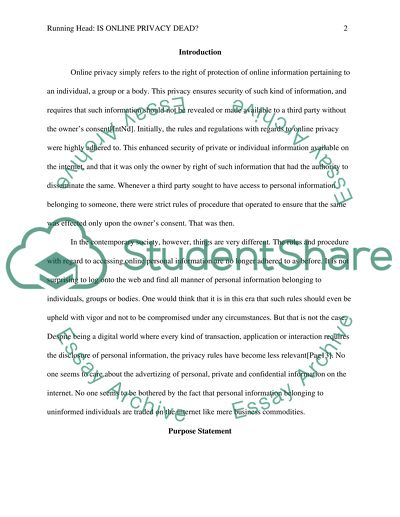Cite this document
(“Is Online Privacy Dead Research Paper Example | Topics and Well Written Essays - 2500 words”, n.d.)
Is Online Privacy Dead Research Paper Example | Topics and Well Written Essays - 2500 words. Retrieved from https://studentshare.org/information-technology/1664418-is-online-privacy-dead
Is Online Privacy Dead Research Paper Example | Topics and Well Written Essays - 2500 words. Retrieved from https://studentshare.org/information-technology/1664418-is-online-privacy-dead
(Is Online Privacy Dead Research Paper Example | Topics and Well Written Essays - 2500 Words)
Is Online Privacy Dead Research Paper Example | Topics and Well Written Essays - 2500 Words. https://studentshare.org/information-technology/1664418-is-online-privacy-dead.
Is Online Privacy Dead Research Paper Example | Topics and Well Written Essays - 2500 Words. https://studentshare.org/information-technology/1664418-is-online-privacy-dead.
“Is Online Privacy Dead Research Paper Example | Topics and Well Written Essays - 2500 Words”, n.d. https://studentshare.org/information-technology/1664418-is-online-privacy-dead.


